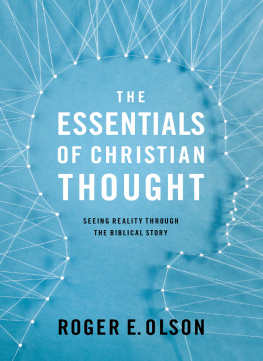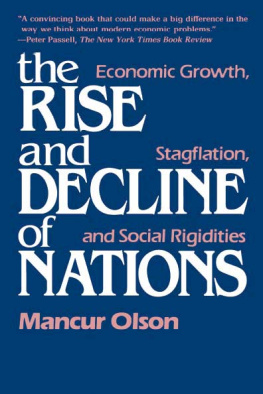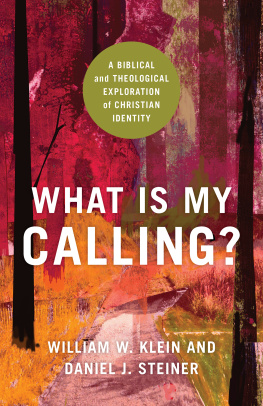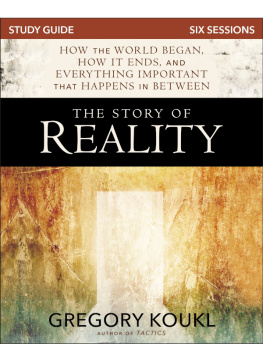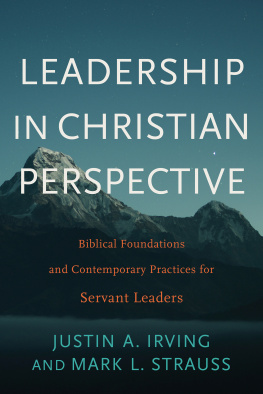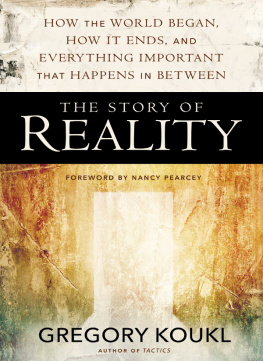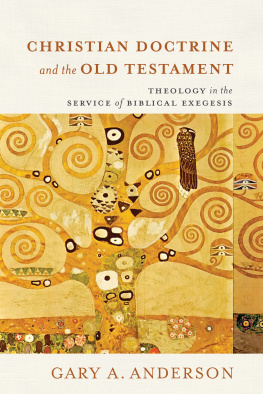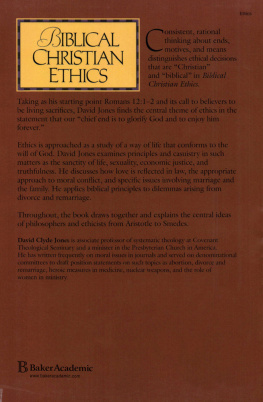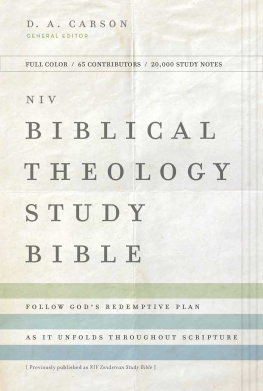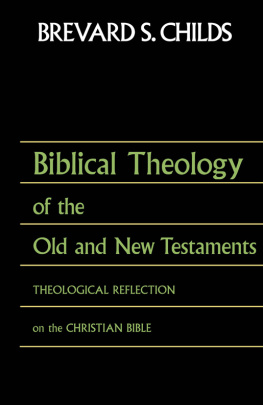Olson offers his readers a timely and powerful defense of a distinctively Christian metaphysics and teases out its implications for theology, apologetics, and cultural dialogue. It is a rich and rewarding read and will do much to reassure its readers of the intellectual credentials of the Christian faith.
A LISTER E. M C G RATH , Andreas Idreos Professor of Science and Religion, University of Oxford
Just as war is too serious to be left to generals, so philosophy is too important to be left to philosophers. At least philosophy in the hands of a theologian like Roger Olson is too important to be left to philosophers. Though my understanding of philosophy is not the same as Olsons, I learned much from his stimulating account.
S TANLEY H AUERWAS , Gilbert T. Rowe Emeritus Professor of Divinity and Law, Duke University
Also by Roger E. Olson
ZONDERVAN
The Essentials of Christian Thought
Copyright 2017 by Roger E. Olson
Requests for information should be addressed to:
Zondervan, 3900 Sparks Dr. SE, Grand Rapids, Michigan 49546
ePub Edition February 2017: ISBN 978-0-3105-2156-3
Library of Congress Cataloging-in-Publication Data
Names: Brown, Tommy, 1979- author.
Title: The seven money types : discover how God wired you to handle money / Tommy Brown.
Other titles: 7 money types
Description: Grand Rapids, Michigan : Zondervan, [2017] | Includes bibliographical references.
Identifiers: LCCN 2016039064 | ISBN 9780310335443 (softcover)
Subjects: LCSH: Finance, Personal Religious aspects Christianity. | Money Religious aspects Christianity.
Classification: LCC HG179 .B7476 2017 | DDC 332.024 dc23 LC record available at https://lccn.loc.gov/2016039064
Unless otherwise noted, Scripture quotations are taken from the Holy Bible, New International Version, NIV. Copyright 1973, 1978, 1984, 2011 by Biblica, Inc. Used by permission of Zondervan. All rights reserved worldwide. www.Zondervan.com. The NIV and New International Version are trademarks registered in the United States Patent and Trademark Office by Biblica, Inc.
Scripture quotations marked KJV are taken from the King James Version of the Bible. Public domain.
Any Internet addresses (websites, blogs, etc.) and telephone numbers in this book are offered as a resource. They are not intended in any way to be or imply an endorsement by Zondervan, nor does Zondervan vouch for the content of these sites and numbers for the life of this book.
All rights reserved. No part of this publication may be reproduced, stored in a retrieval system, or transmitted in any form or by any meanselectronic, mechanical, photocopy, recording, or any otherexcept for brief quotations in printed reviews, without the prior permission of the publisher.
Art direction: Tammy Johnson
Cover photo: 123RF Pogonici
Interior design: Denise Froehlich
17 18 19 20 21 22 23 24 25 26 /DHV/ 10 9 8 7 6 5 4 3 2 1
T his book grew out of a concern for Christians who either shun philosophy altogether as hostile and antithetical to vital, robust Christian faith or absorb unbiblical, and therefore unchristian, views of reality into their own perspectives on life and reality. The world, including America, is filled with alternative, competing visions of realitywhat is ultimately and really real behind what everyone sees every day. These visions of reality are philosophies of life, worldviews, or metaphysical perspectives. This book proposes to help especially Christians devoted to the Bible as Gods Word understand its implicit philosophy of realitywhat is really real behind and beyond appearances. And it proposes to help them distinguish between the Bibles implicit vision of reality and competing onessome of which are sometimes even labeled Christian or compatible with Christianity.
A secondary purpose of this book is to provide administrators and faculty members of Christian institutions of higher education with a relatively simple elucidation of the faith part of faith-learning integrationa central reason for such institutions existence. Numerous Christian colleges and universities, sometimes even Christian high schools, expect their faculty members to practice faith-learning integration. However, that project is often poorly explained. Many administrators and faculty members want to know what the faith part of that project includes. For most Christian thinkers involved in explicating faith-learning integration, the faith part is not a whole system of doctrines or inward spirituality but the biblical-Christian view of realitythat is, basic biblical-Christian philosophy.
This book contains an archeology of the implicit philosophy of the Biblethe Bibles assumed view of reality. It is called The Essentials of Christian Thought because this philosophy is foundational to everything the Bible teaches, and orthodox, thinking Christians of all denominations throughout the centuries have believed it. The meaning of the title will be more fully explained in the Introduction.
I thank Zondervan, and especially editors Madison Trammel and Stanley Gundry, for inviting me to write this book. Thanks also goes to the writers assistant Jared Patterson and to many blog commenters who have stimulated me to compose this book. Finally, much thanks goes to my late mentor John Newport (d. 2000), who planted the seeds of the book in the writers mind during seminars at Rice University in the late 1970s. This book is dedicated to his memory.
T his book is primarily intended for Christian believers, although others are more than welcome to read it. The intended audience is people who believe the Bible is a truthful and trustworthy guide not only to spirituality and ethics but also to the nature of ultimate reality. That is, it is especially for people who believe the Bible is more than just a book of human wisdom or even an expression of Gods moral will. This book is for people who believe the human authors of the Bible were instruments of God, albeit active and not passive ones, in revealing what would otherwise be his secrets. What secrets? The true nature of ultimate realitythe realities behind appearances. Philosophers call the study of such secrets metaphysics, but more about that later. Dont let a word scare you away.
This book presupposes that the Bible is Gods narrative, Gods story, about himself and his relationships with people. It also presupposes that, like every story, the biblical narrative about God and people in history past, present, and future has certain hidden features that need to be explored and drawn out. They are not hidden by design as in esoteric religion. They are hidden because they are taken for grantedby God and by his human instruments, the Bibles authors.

